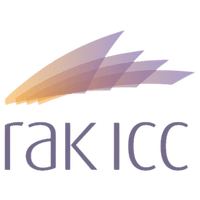Segregated Portfolio Company

What is Segregated Portfolio Company
A Segregated Portfolio Company (SPC) is a company limited by shares. The SPC may create up to ten segregated portfolios for the purpose of segregating the assets and liabilities of the company, held within or on behalf of a segregated portfolio from other assets and liabilities of the company. Segregated portfolios can be incorporated provided the Registrar is satisfied that the directors of the company have the knowledge and expertise necessary for the proper management of segregated portfolios. A Segregated Portfolio Company (or SPC) is sometimes referred to as a protected cell company. Segregated Portfolio assets comprise assets representing share capital, retained earnings, capital reserves, share premiums and all other assets attributable to or held within the Segregated Portfolio.
Advantages of Segregated Portfolio Company
- 100% Foreign ownership
- Complete repatriation of profits and capital
- Open bank accounts locally and internationally
- Establish subsidiary with Free Zone and avail double taxation treaty benefits
Features
A RAK ICC segregated portfolio company has the following features:
Separate legal personality
It is a legal person separate from its shareholders.
Limited liability of shareholders
The liability of each of its shareholders is limited to the amount of share capital that it has agreed to pay to the company.
Up to ten segregated portfolios
It can create up to ten segregated portfolios. The assets held in each such segregated portfolios are ring-fenced from the general liabilities of the company or of other segregated portfolios. Each portfolio may, but does not have to, issue shares.
Independently maintained register of members
The Registrar maintains its register of members which is the definitive statement of the shareholders of the company and, if relevant, its portfolios; there is no maximum number of shareholders.
Flexible approach to Memorandum and Articles
Although a template Memorandum and Articles of Association has been provided by RAK ICC, this form need not be followed. For example, a RAK ICC segregated shares portfolio company may have more than one class of shares with their different rights set out in the Memorandum and Articles of Association.
Privacy
As a general rule, the records maintained by the Registrar may only be inspected by its directors, shareholders or the registered agent.
Restrictions on purpose
Unless they elect otherwise in their Memorandum and Articles, RAK ICC companies have unlimited corporate capacity except that as a general rule they may not carry on business within the United Arab Emirates or carry on financial services businesses.
High anti-money laundering standards
Registered agents are obliged to comply with relevant provisions of the UAE’s anti-money laundering rules. The extent of these obligations is clarified in a Registrar’s Guide.
Directors
It may have corporate directors, so long as at least one director is a natural person.
Registered agent
It needs to have, at all times, a registered agent. A company secretary may be appointed, but this is not required and is not a function that is recognised by the Business Companies Regulations.

